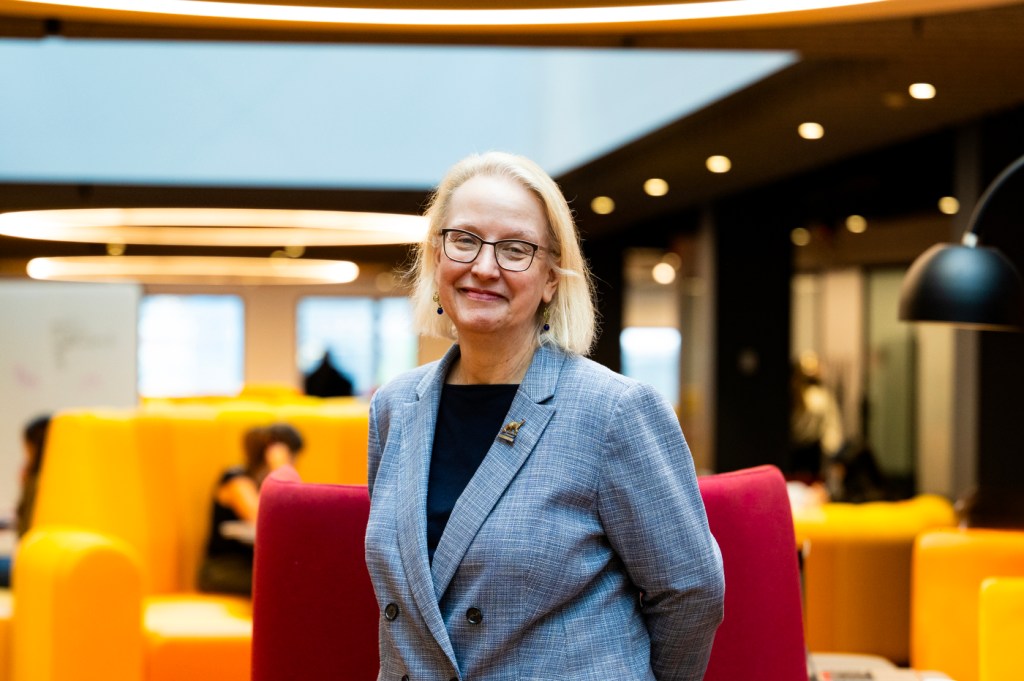Janet Morrow has helped oversee Snell’s digital transformation over the past three decades
One of Morrow’s key responsibilities is working with publishers to license the hundreds of thousands of e-books and online resources on offer at the library.

Janet Morrow has worked at Northeastern University’s Snell Library for 30 years and has played a vital part in its digital transformation.
Morrow is the head of resource and discovery services at the library on the Boston campus. One of her key responsibilities is working with publishers to license the hundreds of thousands of e-books and online resources on offer at the library. She also helps catalog all those items so they are searchable on the library’s online database.
Northeastern Global News caught up with Morrow in recognition of her 30th anniversary and asked her about her favorite parts of the job.
How has your job changed since you started?
When I started, it was still a print environment. To get books into the collection, we would have something called an approval plan. We would get shipments of hundreds of books that selectors would come through and look at to choose things. We were still buying VHS cassettes. We were getting electronic resources on CD-Rom.
I was here when the internet took off, which makes me feel really old. And now of course our collection is predominantly electronic. We don’t buy much print anymore. If you’ve been to the library recently, you’ve seen in the basement what we have for a print collection on site. In the old days, the third and fourth floors were filled with books. The second floor was filled with print journals, and that print collection was also part of my area when I first started here.
But of course all those journals, with the exception of 60 titles, are now electronic. So that’s been the arc of my career — moving from analog to digital.
How did you end up at Northeastern University?
I started working in libraries as an undergraduate at the college I went to in Maine, and wanted to become an archivist. I came to Boston to go to Simmons University and I needed a job, so I started working at Boston Public Library, where I worked for 12 years. I moved from Boston Public to here, and like many librarians, I wanted to work in an academic library. That’s where everything exciting is happening.
What is your favorite part of the job?
Oddly enough, even though in my early days as a librarian I didn’t do this as much, I do really enjoy working on contracts. It’s kind of scary. Maybe I should have been a lawyer. That’s a big part of my job now because all the electronic resources that we provide to you all are licensed, with a very small exception of open access things. Being able to get that contract in place with all the terms we want and knowing that it’s going to be useful to the community is a great satisfaction. It’s also one of the few things that I do when it’s done, and I can move on to something else.
What’s one thing about your job that would surprise most people?
That I’m a librarian and I don’t check out books. My brother still thinks that I sit and read all day. Our jobs are very high tech now, much like everyone’s are. The fact that we’re librarians, but we’re working with licenses, and we’re librarians, but we’re also technologists. I have colleagues who do digitization, and I think to some people that’s surprising — that what we do is so varied. … I sit in front of a computer terminal pretty much eight to nine hours a day.
